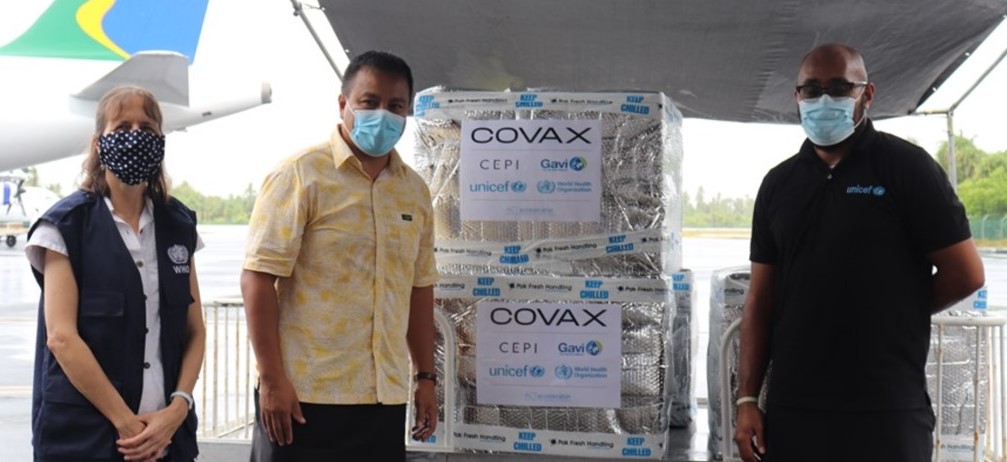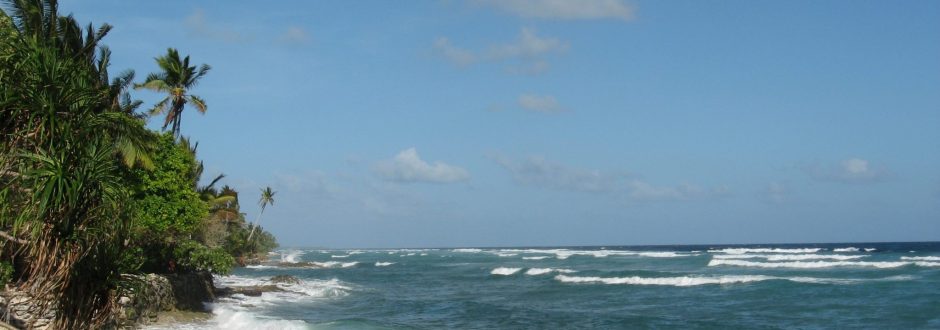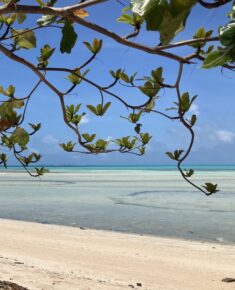The tiny Pacific nation of Kiribati, which until January this year had survived the COVID-19 pandemic without recording a case of the virus, is now battling to contain an outbreak brought in by a planeload of returning missionaries.
Kiribati, where the Sisters of the Good Samaritan have a ministry presence, had managed to remain virus free after swiftly closing its borders to all visitors when the pandemic began in 2020.
However, as part of a staged repatriation process, last month the government was in the process of slowly re-opening borders with two weeks’ quarantine for returning citizens when the virus arrived and broke free. Both Samoa and volcano-hit Tonga have also recorded cases in recent weeks.
Associated Press reports that dozens of passengers on a flight to Kiribati from Fiji (the first to arrive in the nation since borders reopened) tested positive for the virus.
Despite those passengers (returning i-Kiribati Mormon missionaries) being held in quarantine, the virus escaped into the community and now, according to the World Health Organisation, 2964 people have tested positive. So far there have been 11 deaths and most cases are being treated at home.
On January 22, the government imposed a seven-day lockdown on the capital, South Tarawa, which is home to almost half of the country’s 120,000 citizens. The lockdown was subsequently extended.
Under the restrictions, locals must stay home unless in need of essentials like food or healthcare.
Kiribati-born Good Samaritan Sister Taabeia Ibouri, who is currently based in Sydney, said one of the big concerns for the people is a lack of hospital facilities.
“All the hospitals in Kiribati are funded by the government,” she said. “There are no church-provided health services. The main hospital is in South Tarawa, which has more services than the outer islands.
“The health system is very poor. They do not have intensive care units or ventilators, and that is a big worry.
“COVID-19 is a new thing to understand, and I think people need a lot of help, both in South Tarawa where most of the cases have been so far, but also in the outer islands.
“For most of my life I lived on one of the outer islands where the health system is insufficient both in terms of availability and quality. There are about 300 people living there with no doctor, only one nurse and three local people who help the nurse in monitoring the sick or providing other services needed around the hospital or to people at their home.”
Taabeia said another concern is that sometimes 10 or 15 people live in one household, preventing social distancing and increasing the risk of infection.
Good Samaritan Sister Katarina Kabiriera, also born in Kiribati and living in Sydney throughout the pandemic, said that despite the arrival and spread of the virus, so far, nobody had died or become seriously ill.
“The government is taking it very seriously. It has spread rapidly, but everyone is still receiving food. People who have COVID-19 are staying in their homes, and no one is allowed to travel at the moment.”
Taabeia said the lockdown would be difficult for the local people who are used to going out and about both socially and to earn their income.
“Social life is an i-Kiribati identity,” she said. “They grew up with it. It is their life, and I do believe the lockdown feels like a punishment for some.
“It is also hard to know how people can earn their living at this challenging time.”
With only 42.22 cent of the nation being fully vaccinated, the push is on to lift the rate.
Taabeia said she felt that more Kiribati people would come forward for vaccination now that the reality of the virus has arrived on their shores.
“I heard that there are some people who are still hesitant,” she said. “But most of them are likely to get vaccinated now, whereas before, they didn’t see that it mattered.”
The Good Sams have been in Kiribati since 1991 and have ministries in education at the Kiribati Pastoral Institute and in Religious Education. There are now two communities of Sisters who run a preschool and offer pastoral care in villages and centres for people with disabilities. The Sisters are also involved in pastoral support of prisoners and people with mental illness.
This article was published in The Good Oil February 2022 edition.

Vaccines ready for distribution in Kiribati. Image: WHO.


